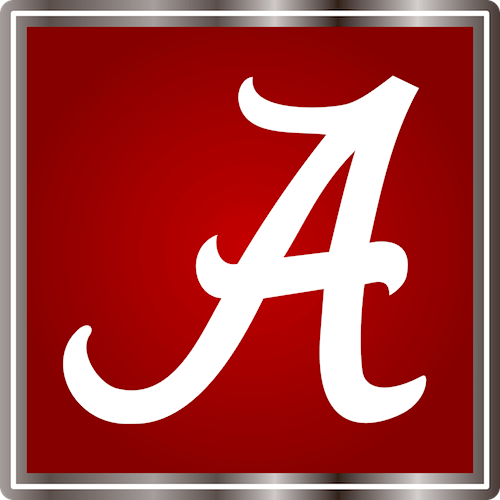Research or Teach Abroad with a Fulbright Award
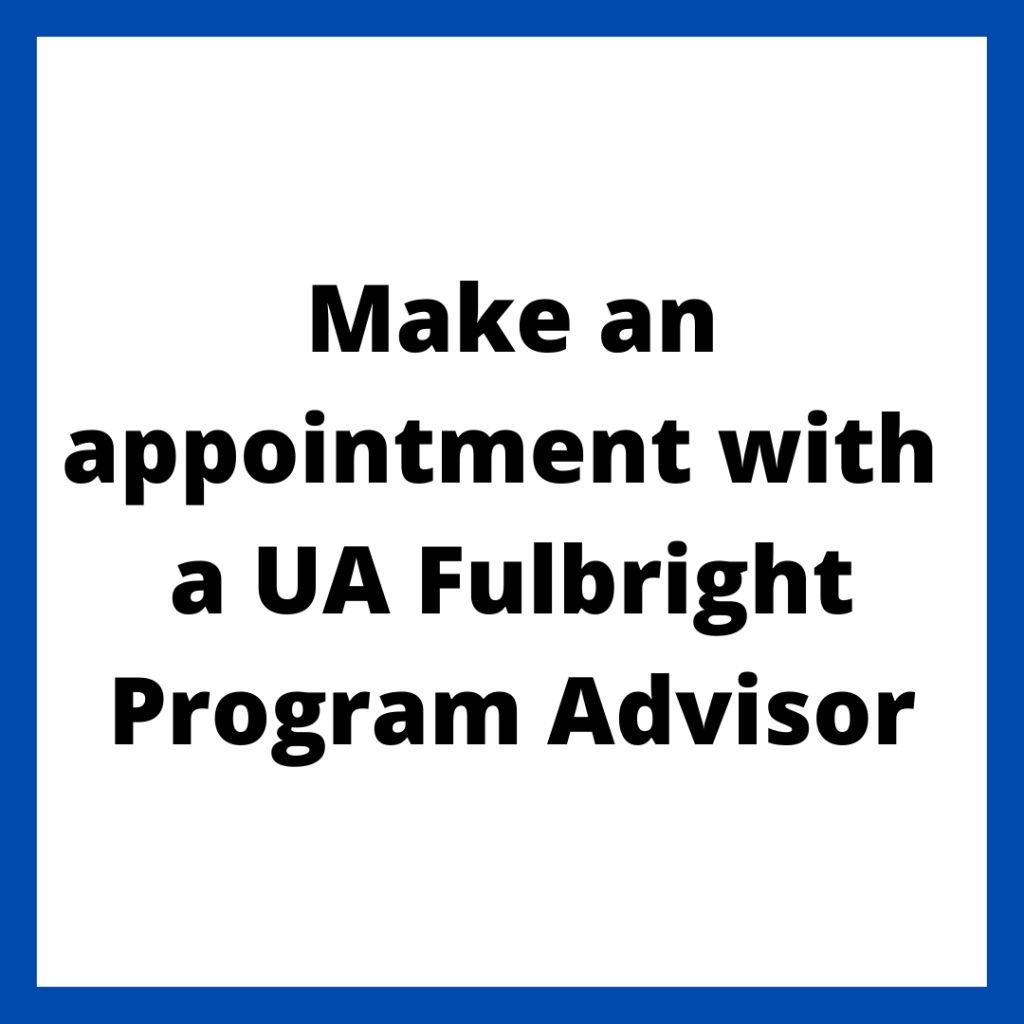
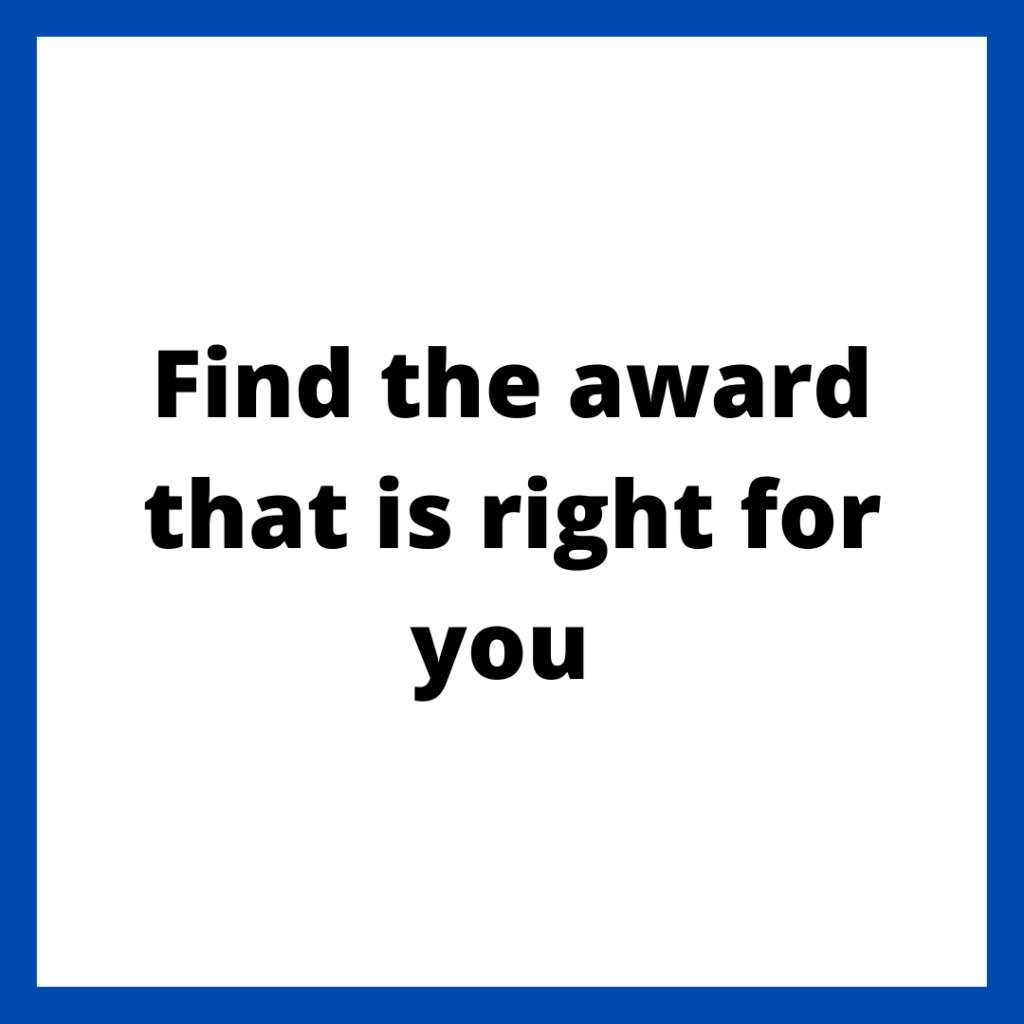
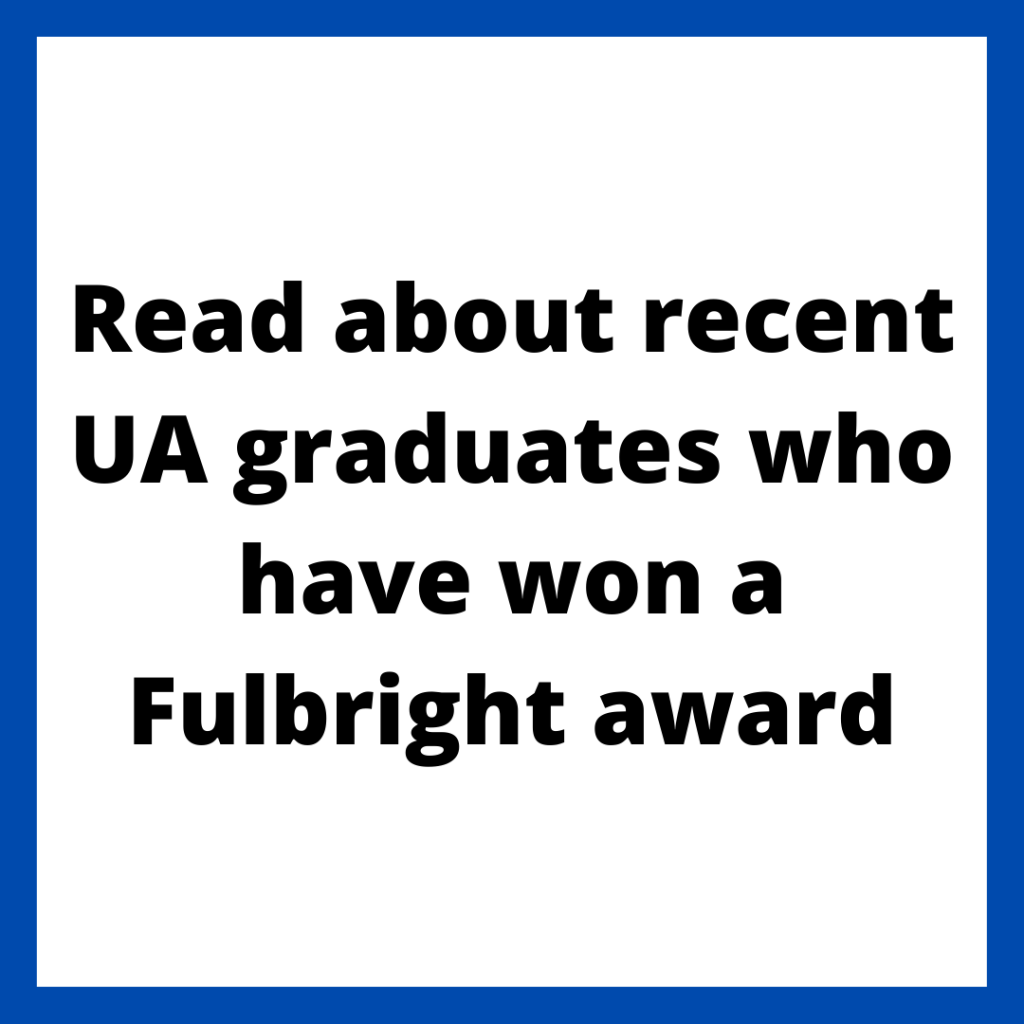
The UA Campus Deadline for Fulbright Awards is Tuesday, September 3, 2024.
Overview
The U.S. Congress created the Fulbright Program in 1946, immediately after World War II, to foster mutual understanding among nations through educational and cultural exchanges. Today the Fulbright U.S. Student Program is the largest U.S. exchange program offering students and recent graduates international opportunities to study, conduct research and teach. Each year, approximately 1,600 Americans study or conduct research in over 140 nations with the support of the Fulbright.
Grants for Study & Research
These grants are provided for an individual to conduct research or study in a host country of their choice for one academic year. Applicants for these grants self-design research projects. Projects may include university coursework, independent research, special projects in the creative or performing arts, or a combination thereof.
Grants for English Teaching Assistantships (ETAs)
ETAs grants are offered in many countries and are designed by the host country to be primarily engagement in an English language classroom. ETAs may, however, propose small research projects or community engagement activities that complement their award and fulfill the purpose of the Fulbright program. Applicants must show interest and ability in teaching in their application.
Applicants must submit the following:
• General Application form
• Statement of Grant Purpose (2 pages for Study & Research grants, 1 page for the ETA)
• Personal Statement (1 page)
• Three email addresses for Reference letters
• Foreign Language Report (when applicable)
• Letter(s) of Affiliation from Overseas contact (for Study & Research grants, and in exceptional cases the ETA)
• Official Transcripts
Next Steps
- Email a UA Fulbright Program Advisor
- Check out the official Fulbright website
- Attend one or more Fulbright Information Sessions on campus
Fulbright Program Advisors
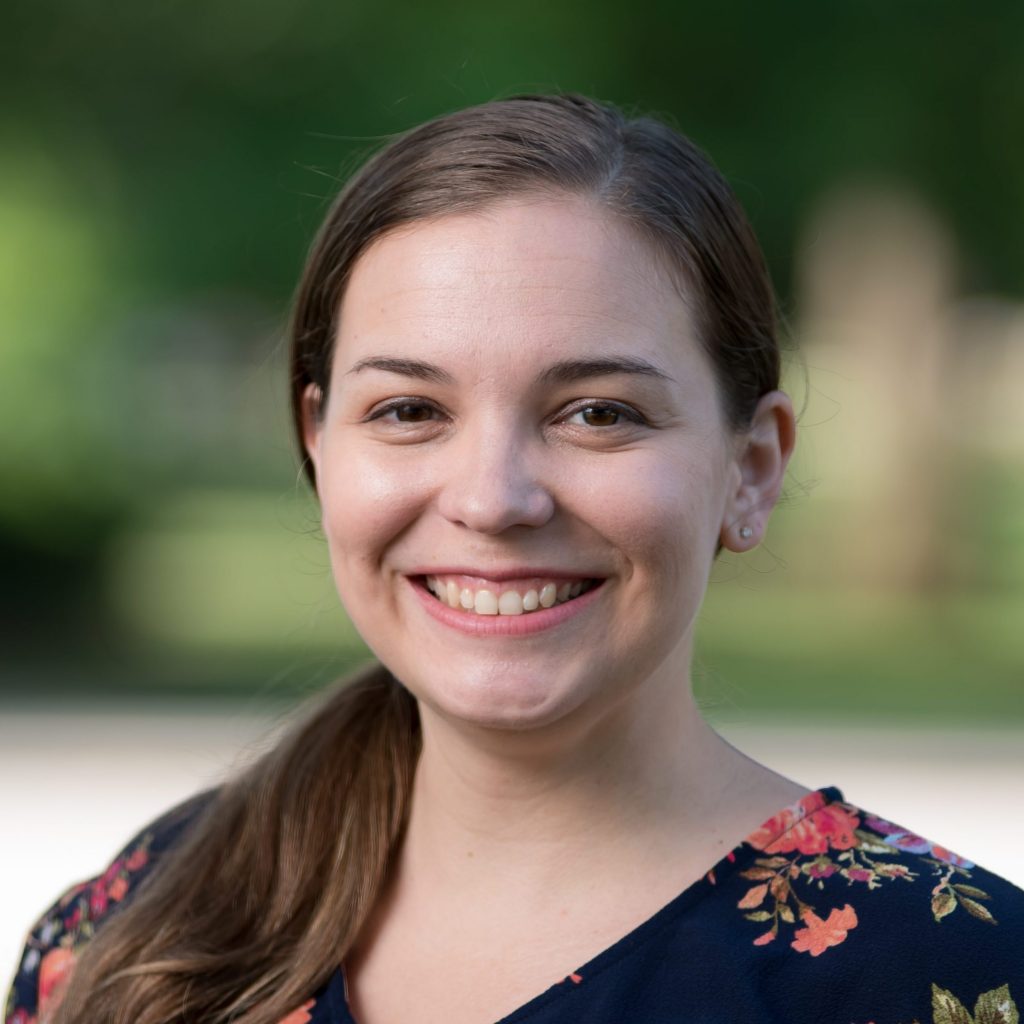
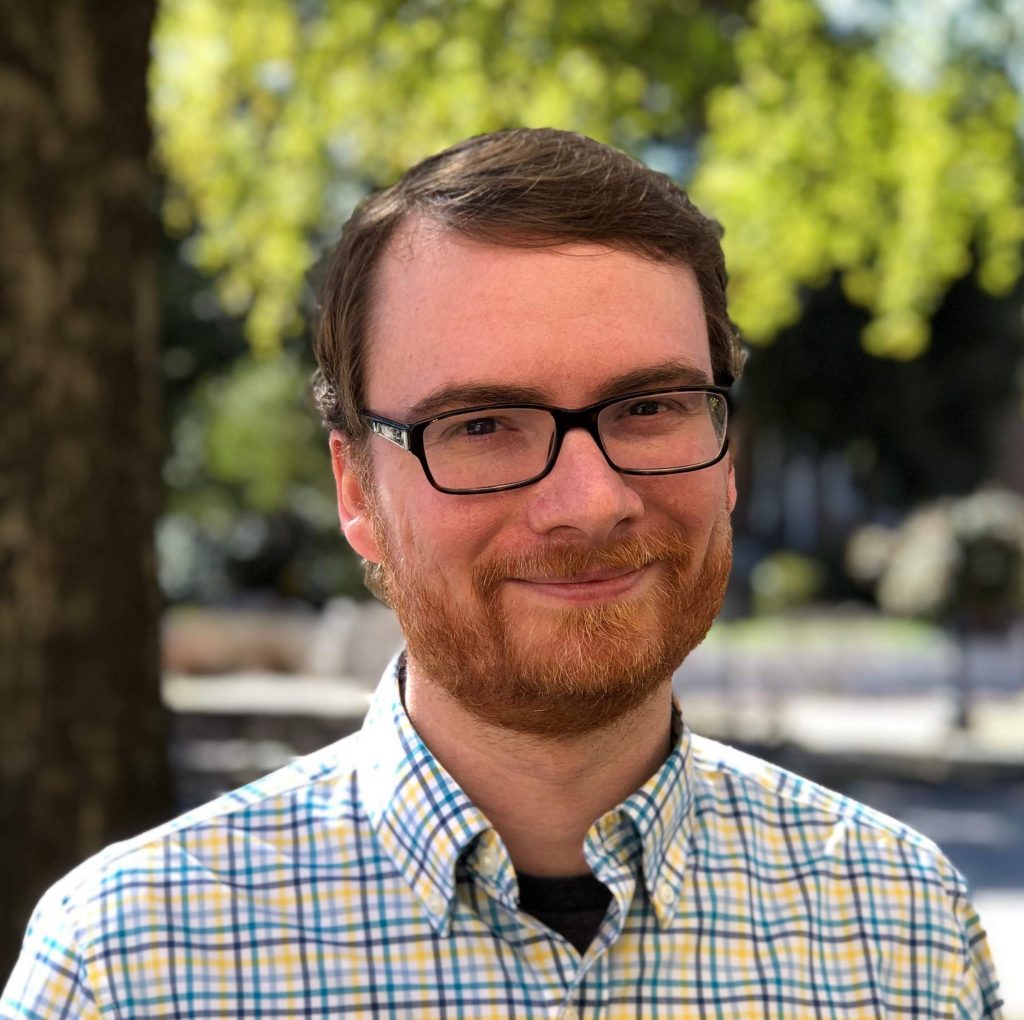
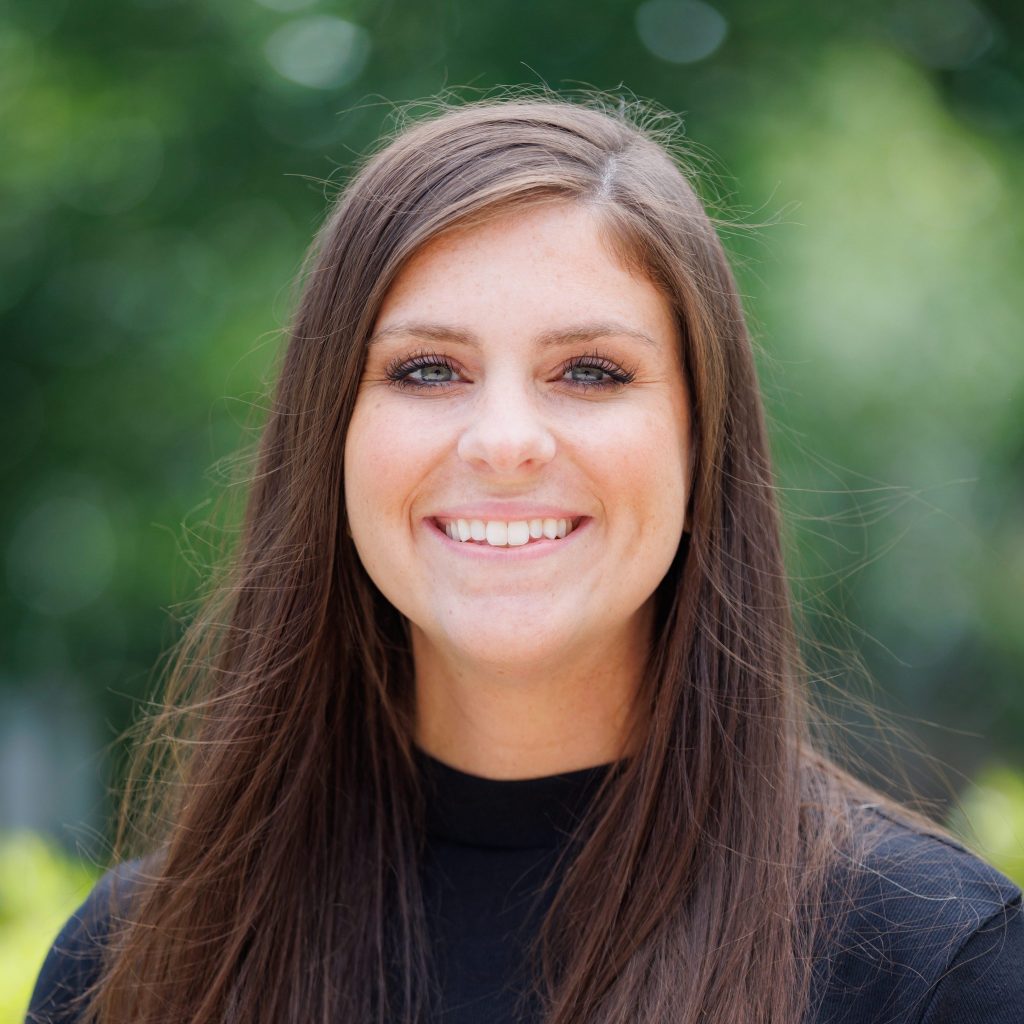
If you are interested in applying for a Fulbright award or want to hear more, schedule an appointment with a Fulbright Program Advisor now!
How to make an appointment:
Click this link to access the scheduling page: http://bit.ly/UAfulbright
Choose “Make Appointment”
Choose “Fulbright Scholarship” from the menu
Choose “Search” to see all available appointments
Confirm your e-mail address and appointment time
Fulbright Program Growth
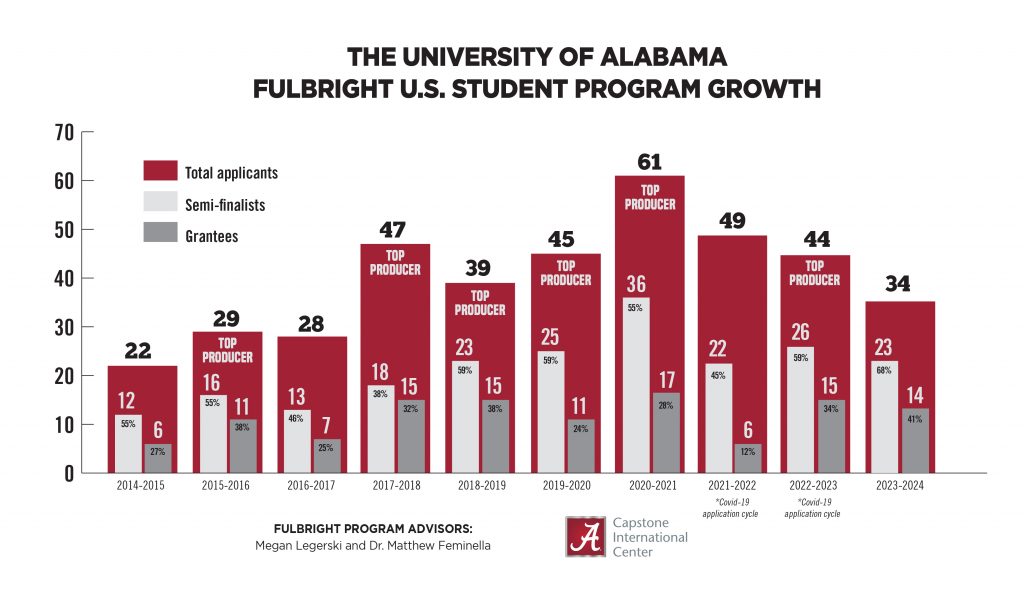
How to Get Started on the Fulbright Website
Application Process
Important Notice: If you are enrolled at The University of Alabama you MUST apply through the UA Fulbright Program and have worked with a Fulbright Program Advisor. If you are a UA alumni, you are eligible, and encouraged to apply through our office as well.
To begin, please email a UA Fulbright Program Advisor: Megan Legerski at megan.legerski@ua.edu, Dr. Matthew Feminella at mfeminella@ua.edu, or Dr. Tori Jessen at tkjessen@ua.edu.
The Online Application:
1. Create an account on http://us.fulbrightonline.org. Click on “Applicants,” from the menu bar and click on “Fulbright Online Application.” Please create an account and fill in the required information, including choosing The University of Alabama as your institution. Please email Tori Jessen at tkjessen@ua.edu if you have any questions about the online application. The application opens in April of each year.
The Campus Deadline: The campus deadline is a FINAL deadline. The UA Campus deadline is Tuesday, September 3, 2024.
Bama Fulbrighters Blog
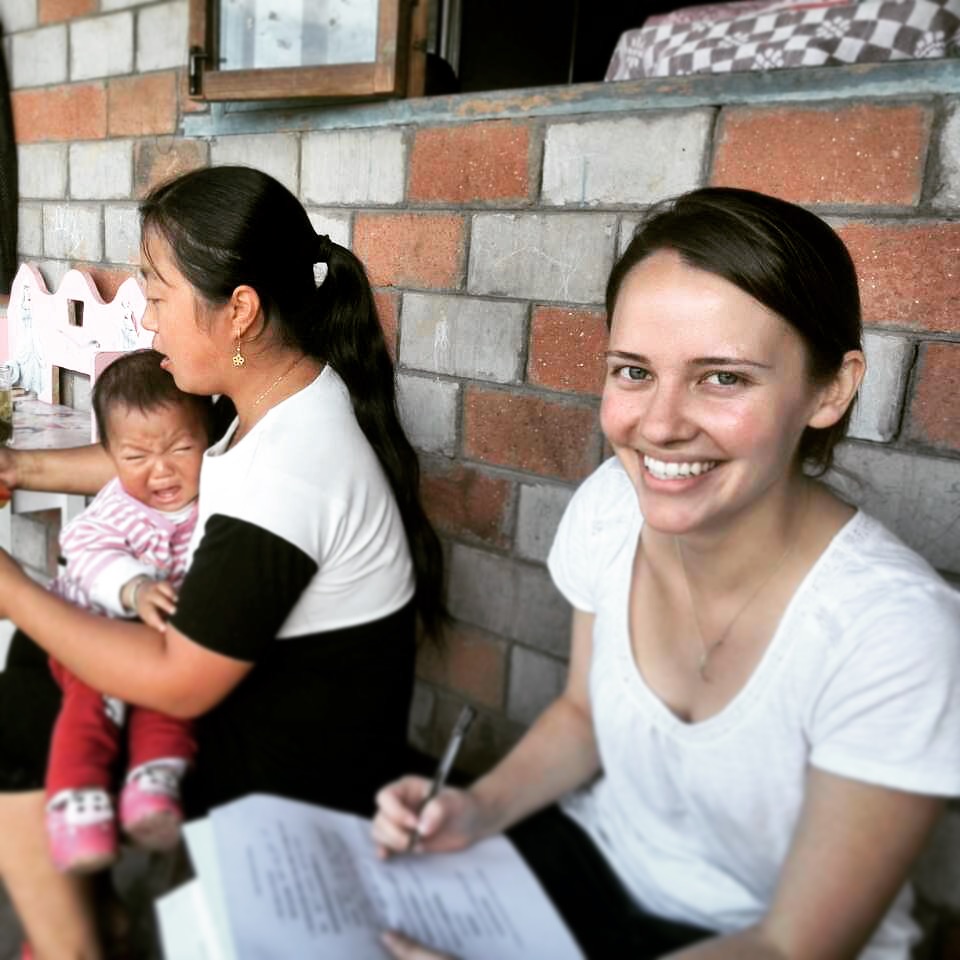
Do you wonder what its like to go abroad on a Fulbright grant?
Do you want to apply but can’t decide which country you want to work in?
Are you curious as to what Fulbright winners do while overseas!
Bama Fulbrighters Blog